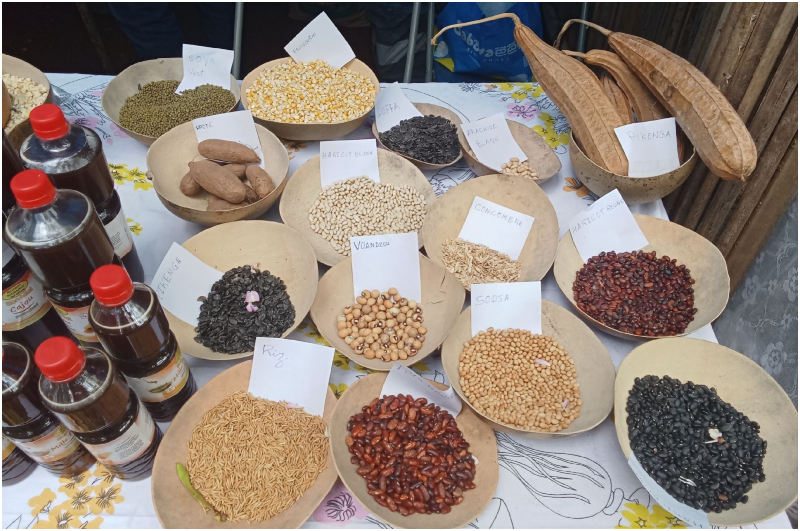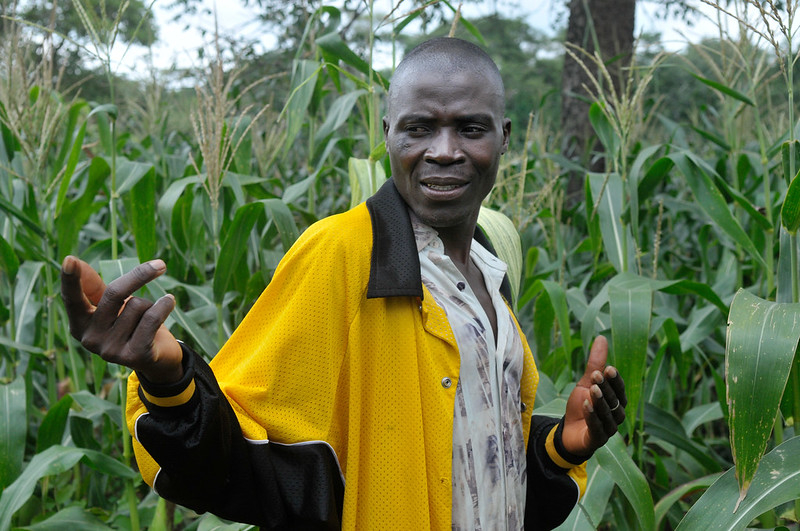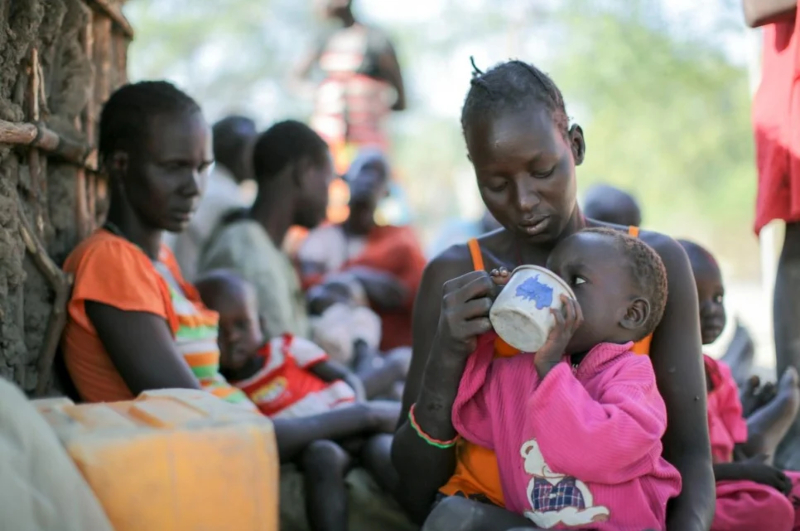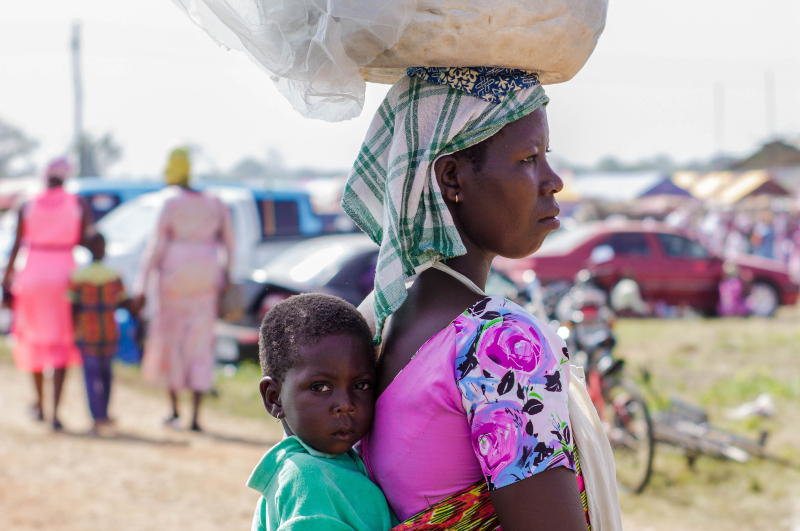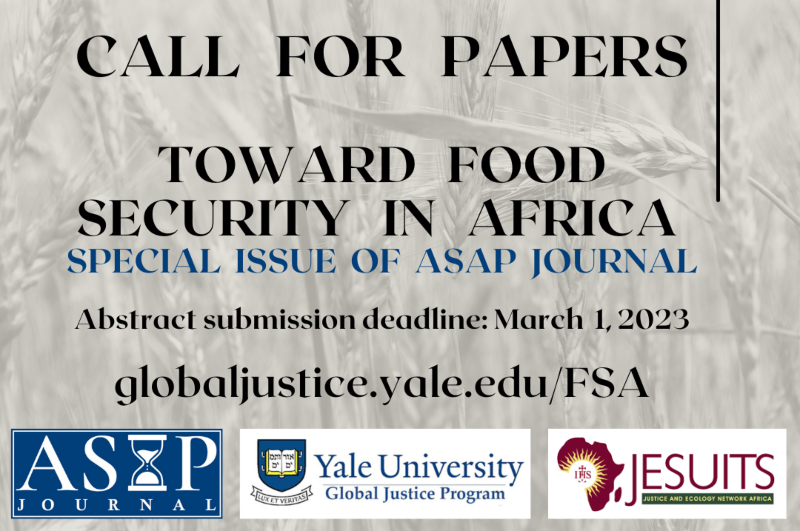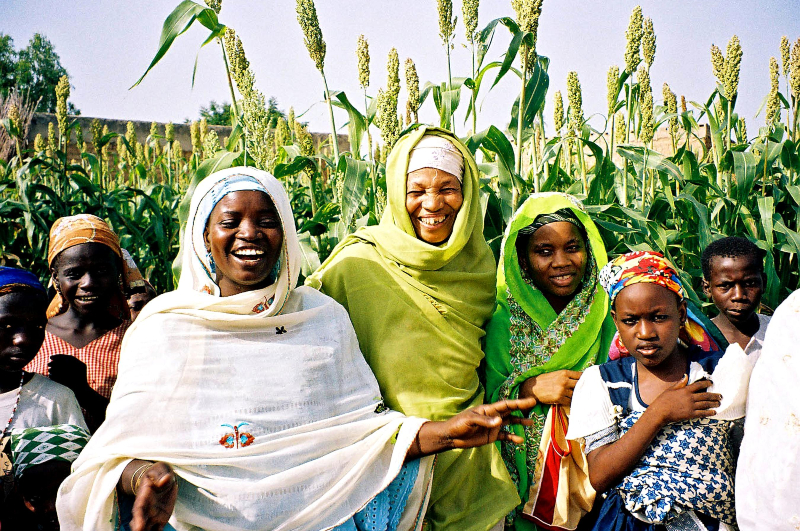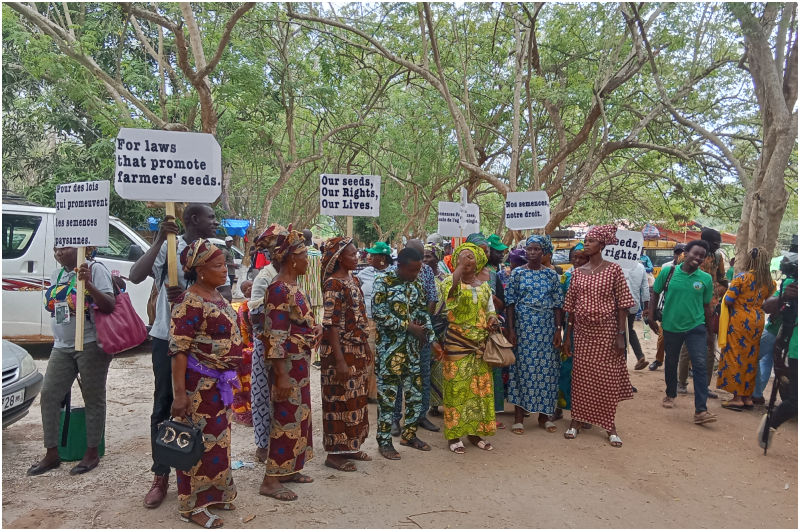

Jesuit Justice and Ecology Network Africa (JENA) participated at the 3rd Edition of the West Africa Peasant’ Seed Fair held in the Dom Elder Camara farm located in Zoungbonou in the community of Houéyogbé, Benin Republic from 9th to 11th March 2023.
The seeds fair was convened by the West African Committee for Farmers' Seeds (COASP) and themed ‘Peasants' and Peoples' Rights Against the Rise of Genetically Modified Organisms in Food And Agriculture in Africa.
Following the regional dynamics of the West African farmers' seed fairs initiated in Djimini (Senegal) in 2007, then Niamey (Niger) in 2018 and Tenkodogo (Burkina-Faso) 2019, the COASP has been progressively formed. COASP is a network based on existing dynamics in different countries and sharing the same vision from the Djimini declaration in 2011 titled: ‘Faced with the progressive invasion of commercial, industrial seeds, especially GMOs, favoured by national and sub-regional laws on seed trade and on intellectual property on living organisms, peasant seeds are threatened to disappear without an organised struggle by peasants. Our food sovereignty is only possible with our farmers' seeds. We are convinced that the peasant seed is our heritage, it is our life. We urge the mobilization of all actors of peasant agriculture for the defense of seed autonomy with our peasant seeds.
The seed fair attracted participants from over 20 countries in Africa and Europe including organizations such as Alliance For Food Sovereignty in Africa (AFSA), Swiss Aid, FIAN International, MISEREOR, Terre Solidaire, and Monde par Tous among others. The fair aimed at engaging CSOs, researchers, and policymakers on issues related to the protection of peasant seed systems and peasants' rights to seeds as a guarantee of food sovereignty; informing and raising awareness of the legal instruments to contain the spread of genetically modified organisms (GMOs) to avoid privatization and loss of crop biodiversity and; understanding GMOs and new developments and changes in the field.
During the workshop gathering at the seed fair, JENA presented a paper on ‘The landscape of agroecology policies towards transforming food systems in sub-Saharan Africa’, drawing lessons from other countries including Cuba, France, and Senegal which have made the transition from an industrial system of agriculture into agroecological integration by relying on a social process that has encouraged adoption. The participants denounced the rise of GMOs in Africa and undertook to deepen their reflection on the best possible solutions to protect peasant seed systems. The communications and exchanges during the various sessions of the fair made it possible for the seeds fair to keep its promise as a space for the exchange of peasant seeds, and knowledge as food systems advocacy channel among peasant communities. The Benin Republic administrative authorities present at the fair including the Ministry of Agriculture, Institut National des Recherches Agricoles du Bénin (INRAB), and the Focal Point encouraged COASP to continue this initiative of fairs which make it possible to conserve the peasant seed systems and put peasant agroecology at the heart of food sovereignty and reaffirming the rights of peasants and other people working in rural areas.
Related Articles
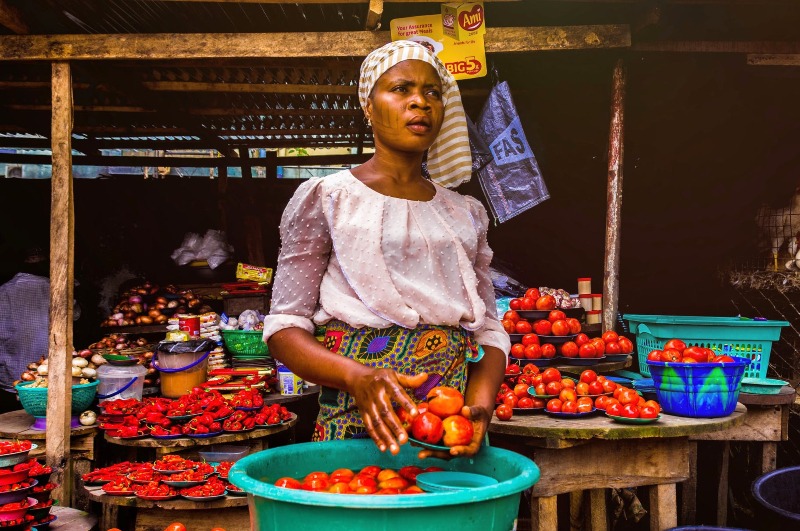
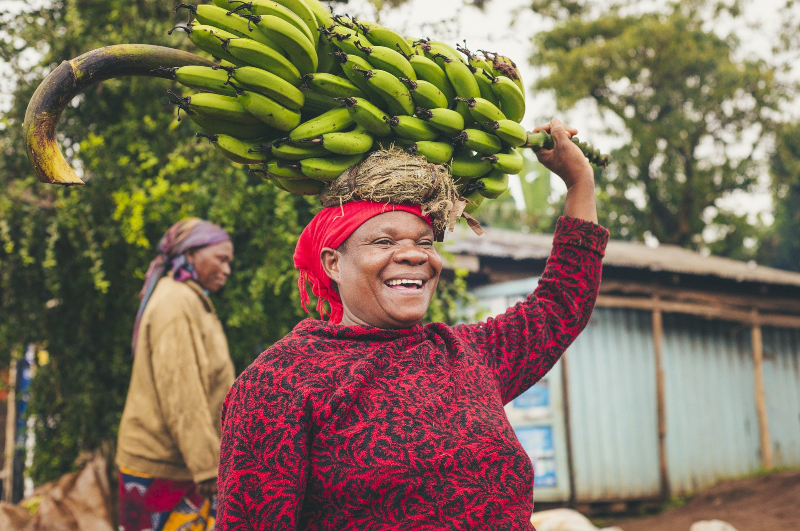
Select Payment Method
Pay by bank transfer
If you wish to make a donation by direct bank transfer please contact Fr Paul Hamill SJ treasurer@jesuits.africa. Fr Paul will get in touch with you about the best method of transfer for you and share account details with you. Donations can be one-off gifts or of any frequency; for example, you might wish to become a regular monthly donor of small amounts; that sort of reliable income can allow for very welcome forward planning in the development of the Society’s works in Africa and Madagascar.
Often it is easier to send a donation to an office within your own country and Fr Paul can advise on how that might be done. In some countries this kind of giving can also be recognised for tax relief and the necessary receipts will be issued.


